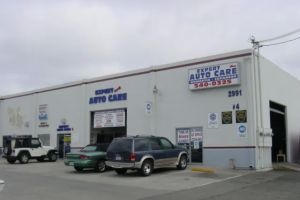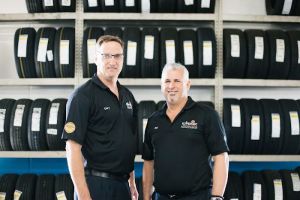How to Fix a Car That Makes Clicking Noises When Turning
As a car owner, there’s nothing more alarming than hearing an unfamiliar sound coming from your vehicle. Recently, I found myself dealing with a clicking noise that occurred whenever I turned the steering wheel, especially during sharp turns. This persistent sound seemed to be coming from the front end of the car, and it was impossible to ignore. I knew something was wrong, but I wasn’t sure what the cause was. After a bit of research and some hands-on troubleshooting, I was able to pinpoint the issue and fix it. If you’re experiencing the same problem, here's how you can fix a car that makes clicking noises when turning.
Understanding the cause of the clicking noise is the first step in addressing the issue. Cars are complex machines, and various components can cause unusual sounds. But don't worry—I'll walk you through the most common causes of clicking noises when turning and how to fix them. Along the way, I’ll share some personal insights and tips to help you get your car back to normal.

Expert Auto Care
2991 Grace Ln #4, Costa Mesa, CA 92626, USA
1. The Role of the CV Joint in Your Car
The first thing I discovered when I began researching the issue was that a clicking sound when turning is often linked to a failing Constant Velocity (CV) joint. These joints are crucial components in your car's drivetrain, as they connect the wheels to the transmission and allow them to rotate while accommodating the steering motion.
After doing some digging, I realized that when the CV joint becomes damaged or worn out, it can cause the clicking sound. Specifically, the noise tends to happen when the joint is under load—typically when making turns. In my case, I noticed that the clicking noise was more pronounced when I turned sharply, which is a classic symptom of a bad CV joint. I also found that CV joint issues are more common in front-wheel-drive cars, but rear-wheel-drive and all-wheel-drive cars can experience similar problems.

ExperTec Automotive
7680 Talbert Ave, Huntington Beach, CA 92648, USA
2. How to Check and Replace a Faulty CV Joint
If you suspect the CV joint is the culprit, it's important to inspect it closely. Here's what I did:
- Inspect the CV Boots: The CV joints are protected by rubber boots that prevent dirt and moisture from damaging them. If these boots are cracked or torn, dirt can enter the joint and cause wear. In my case, the boots were torn, allowing debris to contaminate the joint. When you notice cracked boots, it's a clear sign that the CV joint may need to be replaced.
- Look for Grease Leaks: CV joints are packed with grease to keep them lubricated. If you see grease leaking around the boots, it's another indicator that the joint is failing.
- Check for Play in the Joint: If you're comfortable working on cars, you can lift the front end of the car and rotate the wheels by hand. If the joint feels loose or there’s noticeable play, it’s time to replace the CV joint.
Replacing a CV joint is a bit involved, but if you're a DIY enthusiast, it's doable. However, if you're not familiar with car repairs, I would recommend taking your car to a mechanic for this job, as it requires the right tools and expertise. If you're in need of towing or professional assistance, consider reaching out to Rescue & Towing for reliable services to transport your vehicle to the shop.
3. Worn-Out Wheel Bearings: Another Possible Culprit
Another common cause of clicking noises when turning is worn-out wheel bearings. These small but essential parts support the weight of the car and help the wheels rotate smoothly. If the wheel bearings are damaged or worn, they can produce a clicking, grinding, or whining sound, especially when turning.
I’ve personally dealt with this issue in the past. When I experienced a clicking noise while turning, I initially thought it was the CV joint. However, after further inspection, I realized that the wheel bearings were the problem. To check the wheel bearings, I lifted the car and spun the wheels by hand. If you hear grinding or a rough noise, that's a telltale sign of worn-out bearings.
4. How to Fix Worn-Out Wheel Bearings
Fixing wheel bearings typically requires a press and some specialized tools, so unless you’re an experienced mechanic, this might be another job you want to leave to a professional. Replacing a wheel bearing involves removing the wheel hub, pressing out the old bearing, and installing the new one.
While it’s possible to replace wheel bearings yourself, I would recommend taking your car to a trusted repair shop for this task to ensure it's done correctly. If you do decide to go the DIY route, make sure to use high-quality bearings that are designed for your vehicle’s make and model.
5. Check for Loose or Damaged Steering Components
Loose or damaged steering components can also cause clicking noises when turning. After a bit of tinkering and investigation, I discovered that my car’s tie rods were showing signs of wear. The tie rods are part of the steering mechanism and connect the steering rack to the wheels. If they become loose or damaged, they can cause various issues, including strange sounds when turning.
To inspect the tie rods, I used a jack to lift the front of the car and checked for any play in the steering. If you find that the tie rods are worn or loose, they will need to be replaced. This is another repair that I recommend having a professional mechanic handle, as it involves precise adjustments to the steering system.
6. The Importance of Regular Maintenance
While fixing the issue of clicking noises when turning is essential, I also realized that regular maintenance is key to preventing these types of problems in the future. Keeping up with scheduled inspections, fluid checks, and part replacements can go a long way in ensuring your car remains in good condition and that you don’t encounter issues down the road.
For instance, during one of my routine maintenance check-ups, my mechanic caught an issue with the CV boots before they fully tore, preventing a larger, more expensive repair. Staying proactive about your car’s maintenance can save you money and time in the long run.
If you’re unsure about where to start with your vehicle’s maintenance, consider reaching out to a trusted mechanic or service provider. If you're ever stuck on the road and need assistance, Rescue & Towing is a great option for towing and roadside help to get you back on track.

























